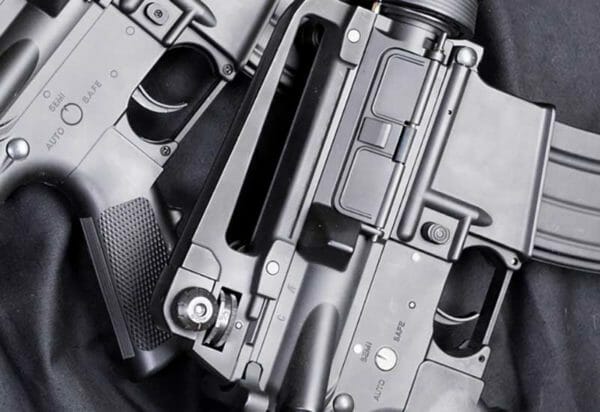
U.S.A. –-(AmmoLand.com)-– In a previous article on AmmoLand, the West Virginia case was described where the federal ban on possession of a firearm with the serial number removed, was found to be unconstitutional. The case is USA v Randy Price.
Serial numbers were never designed as a means of confiscating firearms. They have been subverted for that purpose.
Demanding that firearms have serial numbers and that those numbers are not removed so that firearms can be linked to particular individuals is key to setting up a system for gun confiscation. Those who wish for an unarmed population understand this. They have marshaled vast resources to keep the federal ban on possessing firearms that have had the serial number removed.
The Biden administration has appealed the district court ruling to the Fourth Circuit. The defendant is represented by an attorney appointed by the court. It is unclear what defense of the district court ruling will be heard by the Fourth Circuit.
Amicus briefs have been filed to reverse the district court ruling by:
- Everytown for Gun Safety
- Brady and March For Our Lives
- The District of Columbia was joined by 20 state attorney generals.
The amicus briefs may be viewed on the PACER system.
In the District Court opinion, no attention was paid to the direct and clear threat requiring firearms to have serial numbers and the prohibition on possessing firearms where the serial number has been removed to maintain an armed population.
A ban on firearms with serial numbers removed is a direct seizure of power over the ownership of arms, which the Second Amendment is designed to protect against.
The federal law makes the confiscation of guns from the population much easier. The serial number law makes gun registration possible. Gun registration is gun confiscation. House-to-house searches are unnecessary when a particular firearm can be linked to a particular person. This is the reason those who want a disarmed population are pulling out the stops to keep this law, although it is a clear infringement of the Right to Keep arms, protected by the Second Amendment.
Several European countries require serial numbers on all major gun parts, such as barrels, slides, and frames.
A court appointed attorney has relatively limited resources. No amicus briefs have been filed, as of the December 22, 2022, by any of the organizations which are dedicated to protecting the right to keep and bear arms.
The foremost argument by those fighting to keep the ban is the claim that firearms with serial numbers removed are not in common use for legitimate purposes.
This is the sophistry of the first order. The removal of a serial number does not change the function of a firearm at all. A .38 revolver with or without a serial number is still a .38 revolver. Revolvers are a type of firearm in common use. It is a change in legal nomenclature, which was required by the federal government in the first place. The argument is circular. It states firearms may be banned if the federal government defines them as contraband.
The argument could as easily be made that pink guns are not in common use; therefore, they can be banned. The banning of colored guns has been proposed.
California uses its handgun roster to ban guns based on non-functional criteria. If a model is offered in a different color, it has to be tested in that color, an expensive and time-consuming process. The California handgun roster is being challenged in court.
There is no historical precedent for a ban on firearms that have had the serial number removed. It is recent law enacted in 1990. It has almost no effect on crime.
The secondary argument in the amicus brief is the claim that tracing guns is an effective crime fighting tool. It is not and never has been. Showing numbers of people who have been prosecuted for possessing a firearm with the serial number removed does not show any ability to stop a crime; it only shows prosecutions of victimless crimes.
Firearms tracing is a failed system designed to move to a universal firearms registration system. Showing the ban on possession of firearms with the serial number removed to be unconstitutional renders the decades-long project to enact universal firearms registration futile.
Organizations supporting rights protected by the Second Amendment may not wish to invest scarce resources in a case with a less-than-stellar defendant. It may be worth the effort to get the argument on the record that the ability of the government to ban the possession of firearms that have had a serial number removed is an infringement on Second Amendment rights.
About Dean Weingarten:
Dean Weingarten has been a peace officer, a military officer, was on the University of Wisconsin Pistol Team for four years, and was first certified to teach firearms safety in 1973. He taught the Arizona concealed carry course for fifteen years until the goal of Constitutional Carry was attained. He has degrees in meteorology and mining engineering, and retired from the Department of Defense after a 30 year career in Army Research, Development, Testing, and Evaluation.

from https://ift.tt/ndfBb9Q
via IFTTT

No comments:
Post a Comment